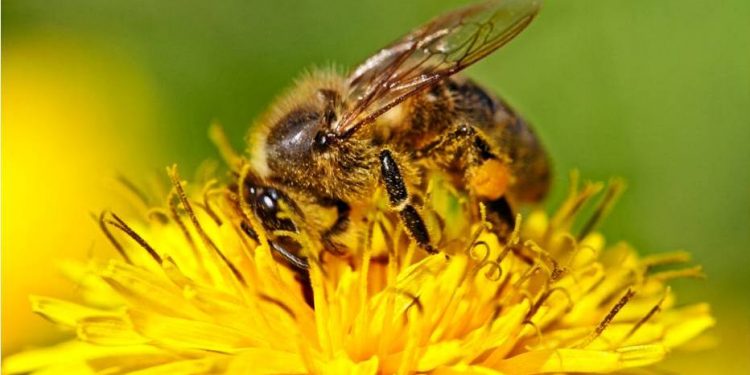Bees & Biodiversity: new cooperations
Launched in 2012, the European Week of Bees and Pollination takes place annually at the European Parliament, bringing together representatives of the European and national institutions, beekeepers, farmers, animal health specialists, scientists, NGOs and the industry. Through discussions and other interactive activities, participants can exchange views, discuss recent developments related to bee health and the beekeeping sector across the continent and urge policy-makers to address specific problems.
Entitled Bees and Biodiversity: new cooperations, the sixth edition of the European Week of Bees and Pollination took place at the European Parliament in Brussels on the 26-28th June 2017. The program included the following events and activities: a scientific symposium (26 June in the Solvay Library), a Beekeepers and Farmers Forum (27 June in the European Parliament), a Euro Mediterranean dialogue on beekeeping (27 June in the European Parliament), a high-level Conference with three panels (28 June) opened by Mrs Mariya Gabriel MEP.
The topic of this year’s edition aimed to highlight the vital contribution of bees and pollination to our societies in Europe and worldwide and to urge all stakeholders to seek new forms of collaboration in the fight for their preservation.
Indeed, bees and pollinators provide invaluable services. About three-quarters of food crops in the world depend to some extent on pollination. Bees alone are responsible for the pollination of more than 30% of global food production. Europe alone is home to 1,965 wild bee species. In addition, there are approximately 600,000 beekeepers and 16 million beehives in the EU. On the whole, estimates show that pollinators contribute EUR 22 billion to European agriculture each year. Furthermore, this value does not consider the precious service pollinators do in maintaining the fecundity of wild plants. It is therefore crucial that a common and collaborative framework be developed in order to protect this species and other pollinating animals.
Under the patronage of MEP Mariya Gabriel (EPP Group / Bulgaria), Vice-Chair of the Intergroup on “Climate Change, Biodiversity, Sustainable Development” and Chair of the Working Group on “Apiculture and Bee Health”, the 6th European Week of Bees and Pollination was actively supported by a large group of MEPs from different EU member states and political groups in particular by Michel Dantin (EPP/France), Marijana Petir (EPP/Croatia), Mairead McGuinness (EPP/Ireland), Frédérique Ries (ALDE/Belgium), Nathalie Griesbeck (ALDE/France) and John Procter (ECR/United Kingdom).
The co-organizers of the Bee Week included the United Nations Development Programme, the Biodiversity network for bees, Gembloux Agro-Bio Tech (University of Liege), BeeOdiversity, Bee Life, the European Food Safety Authority and Copa-Cogeca. This edition was also greatly supported by partners such as Fedapimed, Felcos Umbria and the Coobeeration campaign.



